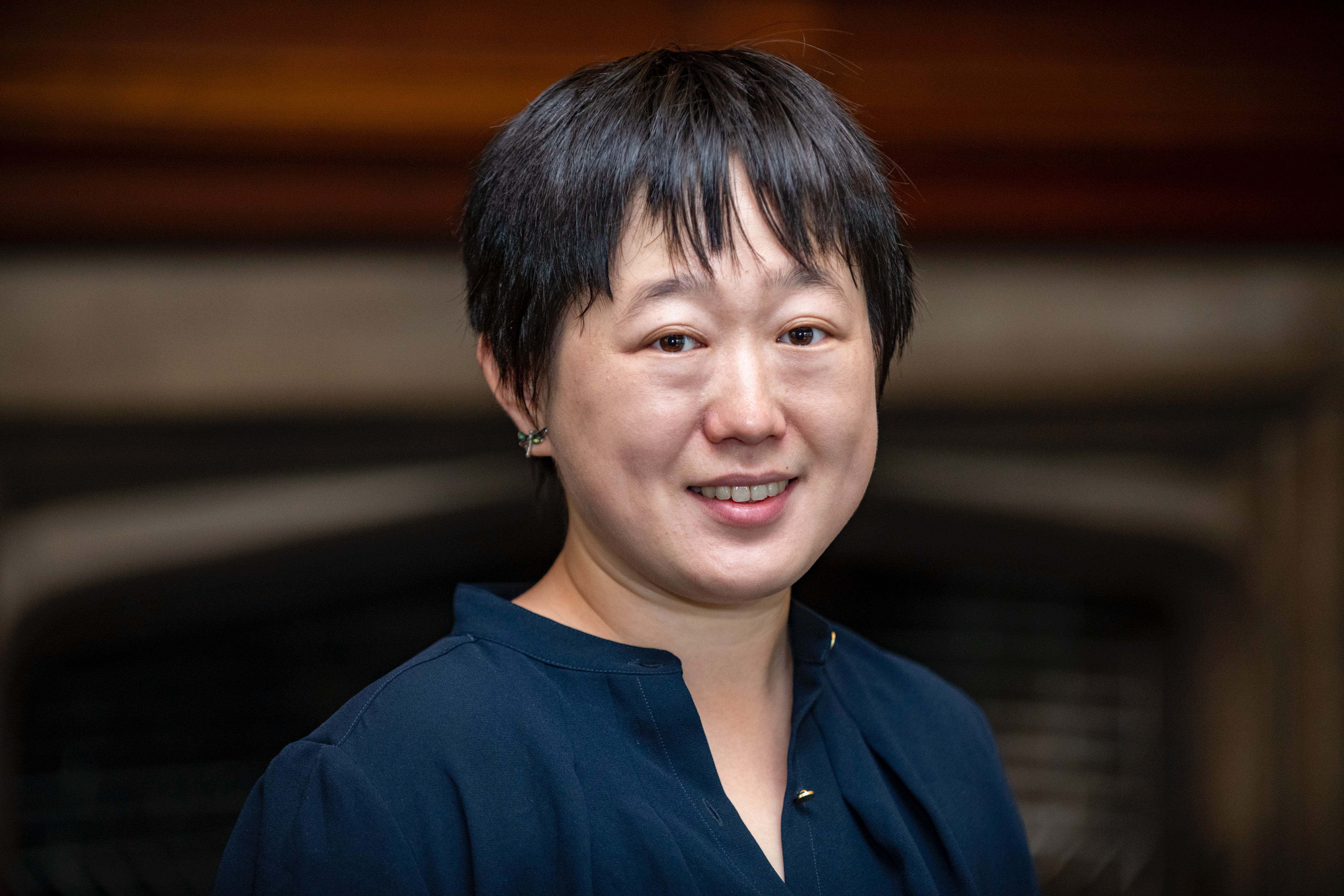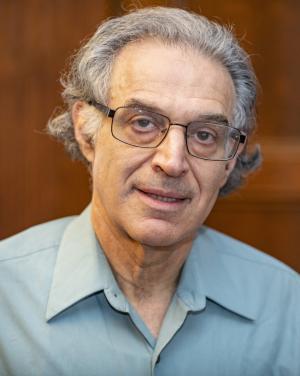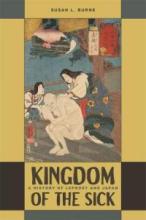
Leiden University, PhD '00
BIOGRAPHY
Jacob Eyferth is a social historian of China with research interests in the life and work experience of nonelite people throughout the twentieth century. Trained at the universities of Berlin and Leiden, he has held postdoctoral fellowships at Oxford, Harvard, and Rutgers and taught at Simon Fraser University. Currently, he is associate professor in the department of East Asian Languages and Civilizations of the University of Chicago. Most of his work has focused on the countryside and on the mid-twentieth century, c. 1920–1970. His first book, Eating Rice from Bamboo Roots, is an ethnographic history of a community of rural papermakers in Sichuan. It won the 2011 Joseph Levenson Prize for the best book on China in the post-1900 category. He is currently working on a second book, tentatively titled Cotton, Gender, and Revolution in Twentieth-Century China, that uses cloth and clothing as a lens through which to analyze how the monumental changes of the twentieth century—revolution, collectivization, industrialization, etc.—transformed the lives of rural women.
Recent Research / Recent Publications
-
Eating Rice from Bamboo Roots: The Social History of a Community of Handicraft Papermakers in Rural Sichuan, 1920–2000. Cambridge, MA: Harvard University Press, 2009.
-
Editor. How China Works: Perspectives on the Twentieth-Century Industrial Workplace. Routledge 2006.
-
Coedited with Peter Ho and Eduard Vermeer. Rural Development in Transitional China. Frank Cass 2004.
-
"Women's Work and the Politics of Homespun in Socialist China, 1948–1980." International Review of Social History 55, no. 4 (December 2012): 1–27.
-
"Technology as Source and Stream: Trade Gods, Ancestors, and the Transmission of Knowledge among Papermakers in Jiajiang, Sichuan." The Chinese Journal for the History of Science and Technology 1 (2011).
-
"Craft Knowledge at the Interface of Written and Oral Cultures." East Asian Science and Technology Studies 4, no. 2 (2010): 185–205.
-
"De-Industrialization in the Chinese Countryside: Handicrafts and Development in Jiajiang (Sichuan), 1935–1978." China Quarterly 173 (March 2003).
-
"How Not to Industrialize: Observations from a Village in Sichuan." The Journal of Peasant Studies 30, no. 3–4 (April/July 2003): 75–92.
-
Delivers talk on "Papermaking and the Politics of Skill in Modern China" at the John Carter Brown Library [video, 71 minutes]

Harvard University, PhD '21
BIOGRAPHY
As a historian of modern Japan and East Asia, I am interested in questions on colonialism, history of labor and expertise, and environmental history. Currently, I am finishing a manuscript on Japan’s infrastructure empire, which explores how Japanese colonial officials obtained knowledge and honed their technological skills from interacting with various local intermediaries and laborers and how the former appropriated the latter’s knowledge to ground their imperial dominance in what historically referred to as Manchuria. By reading infrastructure as archives, this manuscript sheds light on those interactions that were often hidden in colonial archives.
I am also working on a second project that examines the commodification and politicization of air in Japan’s colonial empire.
Having graduated from Harvard University with a Ph.D. in May 2021, I was an Academy Scholar at Harvard Academy for International and Area Studies before joining the History Department in July 2022.
You can find my work here:
- “Flagstone empire: Materiality and technical expertise in Japanese road construction in northeast China (1905–1945).” Modern Asian Studies, 57(3), 2023.
- “Red Brick Imperialism: How Vernacular Knowledge Shaped Japanese Colonial Expertise in Northeast China, 1905–45.” Technology and Culture, 63(1), 2022.
- “Manchukuo voices: Re-interpreting a monumental space in Northeast China (1932–1945).” International Journal of Asian Studies, 20(1), 2021.
I have also published a co-edited volume on archival practices and the future of archives, Adventure, Inquiry, Discovery: CLIR Mellon Fellows and the Archives, published on the CLIR-Mellon Fellowships’ official website.

University of Chicago, PhD '94
BIOGRAPHY
I am a historian of Japan's "long" nineteenth century (1780s–1910s). I am interested in the social history of intellectual and cultural practices and the continuities and ruptures between what conventional periodization terms Japan's "early modern" and "modern" eras. My first book, Before the Nation: Kokugaku and the Imagining of Community in Early Modern Japan (Duke, 2003) examined the nativist discourse of the late Tokugawa period. It traced the efforts of early nineteenth century intellectuals to define the nature of "Japan" as a locus of personal and cultural identity and the appropriation of aspects of this discourse by modern scholars who sought to define the contours of modern Japanese nationalism.
With the completion of this project I turned to a new set of questions related to the history of the body as it came to be conceptualized within medical and legal discourses. My second monograph, Kingdom of the Sick: Leprosy, Citizenship, and Japan (University of Hawaii Press, 2019) explores the long history of leprosy in Japan from the late medieval period when it was identified as a "karmic retribution disease" to the modern period when attempts to control the disease prompted the creation of a system of public sanitaria. I argue that in the modern era leprosy, a particularly stigmatized disease, became the object of an intense debate on the place of the chronically ill and disabled within the Japanese nation.
Gender is an important category of analysis within my work and I have a long-standing interesting in issues of reproductive health and reproductive rights. Together with Barbara Brooks, I co-edited Gender and Law in the Japanese Imperium (Hawaii, 2014). I authored the introduction and contributed an essay that examined the criminalization of abortion and infanticide in late nineteenth-century Japan.
I am currently working on two additional monographs. The first explores the intellectual and professional world of an early modern doctor who practiced in the villages in Akita in the 1830s and '40s. It seeks to explore the impact of new forms of knowledge, techniques, and materia medica for medical practice and considers the implications of the "medical revolution" of the early nineteenth century for the state-sponsored introduction of Western biomedicine after 1870. The second builds on my research on medical commodities, alternative therapies, and psychiatric practice and explores the impact of the new medical marketplace on ideas about mental health in Japan from c. 1880–1940.
In recent years, I have become interested in the use of digital tools for historical research, specifically ArcGIS and text mining. I utilized ArcGIS in my research on leprosy to explore the place of private leprosy hospitals and clinics in the cityscape of late nineteenth-century Tokyo. I am working on a digital project called "Mapping Medical Tokyo" that seeks to visualize and analyze the spatial dimensions of health, disease, and medical care in the Meiji-era city.
My work has been supported by the Fulbright-Hays Fellowship, the IIE Fulbright, the Japan Foundation, the Japan Society for the Promotion of Science, and the National Endowment for the Humanities.
Courses
-
Gender and Sexuality in World Civilizations (undergraduate)
-
Edo/Tokyo: Society and the City in Japan (undergrad/grad)
-
Medicine and Culture in East Asia (undergrad/grad)
-
Contact Zones: Treaty Ports in Nineteenth Century Japan (undergrad/grad)
-
Gender and Japanese History (undergrad/grad)
Recent Research / Recent Publications
-
Kingdom of the Sick: A History of Leprosy and Japan. Honolulu: University of Hawaii Press, 2019.
-
Gender and Law in the Japanese Imperium, co-editor with Barbara J. Brooks. Honolulu: University of Hawaii Press, 2014.
-
Before the Nation: Kokugaku and the Imagining of Community in Early Modern Japan. Durham, NC: Duke University Press, 2003.
-
"The Japanese Patent Medicine Trade in East Asia: 'Women's Medicines and the Tensions of Empire." In Gender, Health, and History in East Asia, edited by Izumi Nakayama and Angela Leung. Hong Kong: Hong Kong University Press, 2018.
-
"History, Testimony, and the Afterlife of Quarantine: The National Hansen's Disease Museum of Japan." In Quarantine: Local and Global Histories, edited by Alison Bashford, 210–29. London: Palgrave, 2016.
-
"A Village Doctor Reads the Shang Han Lun: Medical Empiricism in Late Tokugawa Japan." In Antiquarianism, Language, and Medical Philology, edited by Benjamin Elman, (Leiden: Brill, 2015).
-
"Rethinking 'Leprosy Prevention': Entrepreneurial Doctors, the Meiji Press, and the Civic Origins of Biopolitics." Journal of Japanese Studies 38, no. 2 (Sum. 2012): 297–323.
-
"Marketing Health and Beauty: Advertising, Medicine, and the Modern Body in Meiji-Taisho Japan." In East Asian Visual Culture from the Treaty Ports to World War II, edited by Hans Thomsen and Jennifer Purtle, 179–202. (Chicago: Paragon Books, 2009).
-
"Marketing 'Women's Medicines': Gender, OTC Herbal Medicines, and Medical Culture in Modern Japan," Asian Medicine 7, no.1 (2009).
-
“Nanayama Jundō at Work: A Village Doctor and Medical Knowledge in Nineteenth-Century Japan.” East Asian Science, Medicine, and Technology 29 (Aut. 2008): 61–82.
-
Publishes Kingdom of the Sick: A History of Leprosy and Japan (Hawaii Press, 2019)
-
Co-edits Gender and Law in the Japanese Imperium (Hawaii, 2014) with Barbara J. Brooks
-
Discusses the history of leprosy in Japan on ABC Radio Australia [15 mins]

Harvard University, PhD '95
RESEARCH INTERESTS
Twentieth-century US international history; global history of human-rights politics; postcolonial Southeast Asia
BIOGRAPHY
Mark Philip Bradley is the author of The World Reimagined: Americans and Human Rights in the Twentieth Century (2016), Vietnam at War (2009), and Imagining Vietnam and America: The Making of Postcolonial Vietnam (2000), which won the Harry J. Benda Prize from the Association for Asian Studies. He is the coeditor of Making the Forever War (2021), Familiar Made Strange: American Icons and Artifacts after the Transnational Turn (2015), Making Sense of the Vietnam Wars (2008), and Truth Claims: Representation and Human Rights (2001). Bradley's work has appeared in the American Historical Review, Journal of American History, the Journal of World History, Diplomatic History, and Dissent. His current project is an intellectual and cultural history of the global South under contract with Yale University Press.
A recipient of fellowships from the John Simon Guggenheim Memorial Foundation, the American Council of Learned Societies, the National Endowment for the Humanities, and Fulbright-Hays, Bradley was appointed editor of the American Historical Review in 2021. He has served as the elected president of the Society for Historians of American Foreign Relations, general editor for the four volume Cambridge History of America and the World and coeditor of the Cornell University Press book series, The United States in the World.
Recent Research / Recent Publications
- The World Reimagined: Americans and Human Rights in the Twentieth Century. Cambridge: Cambridge University Press, 2016.
- Vietnam at War: The Search for Meaning. New York: Oxford University Press, 2009.
- Imagining Vietnam and America: The Making of Postcolonial Vietnam, 1919–1950. Chapel Hill: University of North Carolina Press, 2000.
- The Familiar Made Strange: American Icons and Artifacts after the Transnational Turn, coeditor with Brooke L. Blower. Ithaca, NY: Cornell University Press, 2015.
- Making Sense of the Vietnam Wars: Transnational and International Perspectives, coeditor with Marilyn B. Young. New York: Oxford University Press, 2008.
- Truth Claims: Representations and Human Rights, coeditor with Patrice Petro. New Brunswick, NJ: Rutgers University Press, 2002.
- “Making Tuan Andrew Nguyen’s The Spector of the Ancestors Becoming,” American Historical Review 127.3 (September 2022): 1312-18.
- “What is America and the World?”, Cambridge History of America and the World, volume 1 (Cambridge: Cambridge University Press, 2021): 1-7.
- “The Anecdote,” co-written with Lee Weng-Choy, Portable Gray 4.2 (Fall 2021): 310-18.
- "Understanding the Rise of the Global South in Pandemic Times." Diplomatic History 45, no. 3 (2021): 460-67.
- "Making Peace as a Project of Moral Reconstruction." In The Cambridge History of the Second World War, vol. 3, edited by Michael Geyer and Adam Tooze, 528–551. Cambridge: Cambridge University Press, 2015.
- Cowritten with Viet Thanh Nguyen. "Vietnam: American and Vietnamese Public Diplomacy, 1945–2010." In Adversarial States, US Foreign Policy, and Public Diplomacy, edited by Geoffrey Wiseman, 110–139. Stanford: Stanford University Press, 2015.
- “American Vernaculars: The United States and the Global Human Rights Imagination (Presidential Address),” Diplomatic History 38, no. 1 (Jan. 2014): 1–21.
- “The Charlie Maier Scare: The Historiography of American Foreign Relations, 1959–1980.” In America in the World: The Historiography of American Foreign Relations since 1941, 2nd ed., edited by Frank Costigliola and Michael J. Hogan, 9–29. Cambridge: Cambridge University Press, 2013.
- “Internationalism.” In The Oxford Encyclopedia of American Military and Diplomatic History, edited by Timothy J. Lynch, 517–23. New York: Oxford University Press, 2013.
- “The United States and the Global Human Rights Politics in the 1940s.” In Civil Religion, Human Rights and International Relations, edited by Helle Porsdam, 118–35. London: Edward Elgar, 2012.
- “Writing Human Rights History.” Il Mestiere di storico 3, no. 2 (2011): 13–30.
- “Approaching the Universal Declaration of Human Rights.” In The Human Rights Revolution: An International History, edited by Akira Iriye, Petra Goode, and William Hitchcock, 327–43. New York: Oxford University Press, 2011.
- “Setting the Stage: Vietnamese Revolutionary Nationalism and the First Vietnam War.” In The Columbia History of the Vietnam Wars, edited by David Anderson, 93–119. New York: Columbia University Press, 2011.
- "Decolonization, Revolutionary Nationalism, and the Cold War, 1919-1962." In The Cambridge History of the War, vol. 1, edited by Melvyn P. Leffler and Odd Arne Westad. Cambridge: Cambridge University Press, 2009.
- "The Ambiguities of Sovereignty: The United States and the Global Rights Cases of the 1940s." In Art of the State: Sovereignty Past and Present, edited by Douglas Howland and Luise White. Bloomington: Indiana University Press, 2008.
- "Introduction." In Human Rights and Revolution, edited by Jeffrey N. Wasserstrom, Lynn Hunt, and Greg Grandin. New York: Rowman and Littlefield, 2007.
- "Interchange: Legacies of the Vietnam Wars." Journal of American History 43, no. 2 (Sept. 2006): 452–91.
- "Making Sense of the French War: Postcolonial Modernity and Vietnam, 1946-1954." In Indochina in the Balance: New Perspectives on the First Vietnam War, edited by Mark Lawrence and Fredrik Logevall, 16–40. Cambridge, MA: Harvard University Press, 2006.
- "The Imperial and the Postcolonial." In Palgrave Advances in International History, edited by P. Finney, 247–266. London and New York: Palgrave/Macmillan Press, 2005.
- "Becoming Van Minh: Civilizational Discourse and Rights Talk in Colonial Vietnam." Journal of World History 15, no. 1 (Mar. 2004): 65–83.
- "Franklin Roosevelt, Trusteeship and US Exceptionalism: Reconsidering American Visions of Postcolonial Vietnam." In The Transformation of Southeast Asia: International Perspectives on Decolonization, edited by Marc Frey, Ronald W. Preussen, and Tan Tai Yong, 197–212. Armonk: M.E. Sharpe, 2003; and in A Companion to the Vietnam War, edited by Marilyn B.Young and Robert Buzzanco, 130–145. New York: Blackwell Publishing, 2002.
- "Contests of Memory: Remembering and Forgetting War in the Contemporary Vietnamese Cinema." In The Country of Memory: Remaking the Past in Late Socialist Vietnam, edited by Hue-Tam Ho Tai, 196–226. Berkeley: University of California Press, 2001.
- "Slouching Toward Bethlehem: Culture, Diplomacy, and the Origins of the Cold War in Vietnam." In Cold War Constructions: The Political Culture of United States Imperialism, 1945–1966, edited by Christian G. Appy, 11–34. Amherst: University of Massachusetts Press, 2000.
- Reviews Ken Burns and Lynn Novick’s The Vietnam War, American Historical Review 124, no. 1 (Feb. 2019).
- "The Universal Declaration of Human Rights at 70," Perpectives on History, Dec. 10, 2018
- Appointed Deputy Dean of the Social Sciences
- Discusses "Human Rights in the Era of Trump" for AHA Today (blog)
- Talks on "American Views on Global Human Rights," Woodrow Wilson Center [video, 88 minutes]
- Authors The World Reimagined (Cambridge, 2016)
- Convenes “Colloquy: Queering America and the World.” Diplomatic History 40, no. 1 (Jan. 2016)

Yale University, PhD '08
BIOGRAPHY
Johanna S. Ransmeier 任思梅 is a social and legal historian of modern China. Her current research investigates the expansion of legal literacy and the development of a Chinese legal imagination during times of revolutionary change. In this project, she asks what happens when citizens’ legitimate expectations of the law get ahead of the ability of legal institutions to deliver on the promise of new legislation or legal innovations? What makes the law a site of both soaring aspiration and crushing disappointment? She also studies the surprising ways crime and the law intersect with family life in China. Her first book Sold People: Traffickers and Family Life in North China (Harvard University Press, 2017) exposed the transactional foundations of traditional family structures and the role of human trafficking in late Qing and Republican China. She is a fellow with the National Committee on US China Relations Public Intellectuals Program (Cohort V) and was a visiting research fellow at the Institute of Modern History at Academia Sinica in Taiwan. Before joining the University of Chicago, she was a member of the department of History and Classical Studies at McGill University. She currently serves as co-chair of the faculty board of the Pozen Family Center for Human Rights.
Recent Research / Recent Publications
-
Receives 2022 Quantrell Award
-
Named a fellow in the Public Intellectuals Program of the National Committee on US-China Relations
-
Coorganizes "Human Trafficking, Labor Migration, and Migration Control in Comparative Historical Perspective" conference, Pozen Family Center for Human Rights
-
Discusses Chinese Human Trafficking and Slavery during the Late Qing and Republican Periods [video, 5 minutes]

Yale University, PhD' 88
BIOGRAPHY
Kenneth Pomeranz is a University Professor of History and in the College; he previously taught at the University of California, Irvine. His work focuses mostly on China, though he is also very interested in comparative and world history. Most of his research is in social, economic, and environmental history, though he has also worked on state formation, imperialism, religion, gender, and other topics. His publications include The Great Divergence: China, Europe, and the Making of the Modern World Economy (2000), which won the John K. Fairbank Prize from the AHA, and shared the World History Association book prize; The Making of a Hinterland: State, Society and Economy in Inland North China, 1853–1937 (1993), which also won the Fairbank Prize; The World that Trade Created (with Steven Topik, first edition 1999, 3rd edition 2012), and a collection of his essays, recently published in France. He has also edited or co-edited five books, and was one of the founding editors of the Journal of Global History. He is a fellow of the American Academy of Arts and Sciences and has received fellowships from the Guggenheim Foundation, the American Philosophical Society, American Council of Learned Societies, the Institute for Advanced Studies, the National Endowment for the Humanities, and other sources. His current projects include a history of Chinese political economy from the seventeenth century to the present, and a book called Why Is China So Big? which tries to explain, from various perspectives, how and why contemporary China's huge land mass and population have wound up forming a single political unit.
Recent Research / Recent Publications
Coeditor with J. R. McNeill. Production, Destruction, and Connection, 1750–Present. Part 1: Structures, Spaces, and Boundary Making, The Cambridge World History, vol. VII (Cambridge: Cambridge University Press, 2015.
Coeditor with J. R. McNeill. Production, Destruction, and Connection, 1750–Present. Part 2: Shared Transformations? The Cambridge World History, vol. VII (Cambridge: Cambridge University Press, 2015.
Coeditor with Laura J. Mitchell and James B. Given. Worlds Together, Worlds Apart: A Companion Reader. New York: W.W. Norton, 2011.
La Force de L’Empire: Révolution industrielle et écologie, ou pourquoi l’angleterre a fait mieux que la Chine. Edited, with an introduction, by Philippe Minard. Alfortville: Éditions ère, 2009.
The book collects various pieces of my work previously published in English, with some previously unpublished material added in Chapter II.
Editor, The Pacific in the Age of Early Industrialization. Farnham: Ashgate Publishing, 2009.
Coeditor with Kate Merkel-Hess and Jeffrey Wasserstrom. China in 2008: A Year of Great Significance. Washington, DC: Rowman and Littlefield, 2009.
"Introduction: the Environment and World History" and "The Transformation of China's Environment, 1500–2000." In The Environment and World History, 1500–2000. Coedited with Edmund T. Burke III, 3–32, 118–164. Berkeley: University of California Press, 2009.
Coeditor with John McCusker, Stanley Engerman, David Hancock, and Lewis Cain. Encyclopedia of the History of World Trade. Farmington Hills, MI: Thomson Gale 2005.
The Great Divergence: China, Europe and the Making of the Modern World Economy. Princeton, NJ: Princeton University Press, 2000.
Coauthor with Steven Topik. The World that Trade Created: Society, Politics and an Emerging World Economy, Armonk, NY: M.E. Sharpe, 1999; fourth edition, 2017.
The Making of a Hinterland: State, Society and Economy in Inland North China, 1853–1937. Berkeley: University of California Press, 1993.
- "Repenser le changement économique de longue durée: La Chine, l’Europe, et l’historie comparée." In L'histoire économique en mouvement: entre héritages et renouvellements, edited by Jean Claude Daumas, 293–310. Villieneuve d’Ascq: Presses universitaires du Septentrion, 2012.
- "Contemporary Development and Economic History: How Do We Know What Matters?" Economic History of Developing Regions, special issue for World Economic History Congress 27, no. 1 (2012): 134–145.
- "The Great Divergence debate at 10—and at 250." Historically Speaking 12, no. 4 (September/October, 2011). Response to a forum on the tenth anniversary of the publication of The Great Divergence.
- "Areas, Networks, and the Search for 'Early Modern' East Asia." In Comparative Early Modernities, edited by David L. Porter. London: Palgrave, 2012.
- "Labor-Intensive Industrialization in the Yangzi Delta: Late Imperial Patterns and their Modern Fates." In Labor-Intensive Industrialization in Global History, edited by Kaoru Sugihara and G.M. Austin. London: Routledge, 2012.
- Coauthor with Daniel Segal. "World History: Departures and Variations." In A Companion to World History, edited by Douglas Northrop. New York: Wiley-Blackwell, 2012.
- "Advanced Agriculture." In The Oxford Handbook of World History, edited by Jerry H. Bentley, 246–266. Oxford: Oxford University Press, 2011.
- "Labeling and Analyzing Historical Phenomena: Some Preliminary Challenges." Cliodynamics: The Journal of Theoretical and Mathematical History 2, no. 1 (March 2011): 3–27.
- "Commerce." In The Oxford Concise Companion to World History, edited by U.C. Rublack, 105–128. Oxford, Oxford University Press, 2011.
- "Their Own Path to Crisis? Social Change, State-Building, and the Limits of Qing Expansion, ca. 1770–1840." In The Age of Revolutions in a Global Context, edited by David Armitage and Sanjay Subrahmanyam, 189–208. New York: Palgrave, 2010.
- "Putting Modernity in Its Place(s): Reflections on Jack Goody's The Theft of History." Theory, Culture, and Society 26, no. 7/8 (December 2009): 32–51.
- "Shang xia Taishan—Zhongguo minjian xinyang zhengzhi zhong de Bixia yuanjun (yue gongyuan 1500 nian zhi 1949 nian." (Up and Down Mt. Tai—Bixia Yuanjun in the Politics of Chinese Popular Religion, ca 1500–1949) Xin shixue 20, no. 4 (December, 2009): 169–215.
- "Le machinisme induit-il une discontinuité historique? Industrialisation, modernité précoce et formes du changement économique dans l’histoire globale." In Histoire globale, mondialisations, capitalisme, edited by P. Beaujard, L. Berger, and P. Norel, 335–373. Paris: La Découverte, 2009.
- "Calamities Without Collapse: Environment, Economy and Society in China, ca. 1800–1949." In Questioning Collapse, edited by Patricia McAnany and Norman Yoffee. Cambridge: Cambridge University Press, 2009.
- "The Great Himalayan Watershed: Agrarian Crisis, Mega-Dams, and the Environment." New Left Review 58 (July/August 2009): 5–39 (short version). Longer version published in The Asia-Pacific Journal: Japan Focus (July 27, 2009). Abridged version published in Engineering World (August/September 2009): 32–42.
- "World History and Environmental History: Introducing an Agenda," and "China's State, Economy and Environment in Global Perspective, 1400–2000." In Environmental History and World History, edited by both in Edmund Burke III and Kenneth Pomeranz, 3–32, 118–164. Berkeley: University of California Press, 2009.
- "Introduction: Industrialization and the pacific world ca. 1800-1930 - and beyond" In The Pacific in the Age of Early Industrialization, edited by Kenneth Pomeranz, xiii–xlix. Farnham: Ashgate, 2009.
- "Rekishi wa gurobaru kenkyu ni dono yō na kōken ga de suru ka?" (What Does History Have to Offer to Global Studies?). In Gurobaru Hisutori no Chōsen (Challenges of Global History), edited by Mizushima Tsukasa, 46–55. Tokyo: Yamakawa Shuppansha, 2008.
- "Land Markets in Late Imperial and Republican China." Continuity and Change 23, no. 1 (April 2008): 101–150.
- "Chinese Development in Long-run Perspective." Proceedings of the American Philosophical Society 152, no. 1 (March 2008): 83–100.
- "Social History and World History: From Daily Life to Patterns of Change." Journal of World History 18, no. 1 (March 2007). Chinese translation, 2009
- "Orthopraxy, Orthodoxy, and the Goddess(es) of Taishan." Modern China 33, no. 1 (January 2007): 22–46.
- "Limian jingji: Zhonghua diguo wanqi de nongcun shouru, feiwendingxing yu xigbie guifan" (The Economics of Respectability: Rural Incomes, Instability, and Gender Roles in Late Imperial China). Jindai Zhongguo funu shi yanjiu (Research on Modern Chinese Women’s History) 14 (December 2006): 205–241. A revised and translated version of "Women's Work and the Economics of Respectability." In Gender in Motion, edited by Bryna Goodman and Wendy Larson. Lanham, MD: Rowman and Littlefield, 2005.
- "Without Coal? Colonies? Calculus? Europe, China, and the Industrial Revolution." In Unmaking the West: "What-If" scenarios that Rewrite World History, edited by Ned Lebow, Geoffrey Parker, and Philip Tetlock, 241–276. Ann Arbor: University of Michigan Press, 2006.
- "Imperialism, Development, and 'Civilizing' Missions, Past and Present." Daedalus (April 2005).
- "Standards of Living in Eighteenth-Century China: Regional Differences, Temporal Trends, and Incomplete Evidence." In Standards of Living and Mortality in Pre-Industrial Times, edited by Robert Allen, Tommy Bengtsson, and Martin Dribe. New York: Oxford University Press, 2005.
- "Zhuanbian de diguo: Zhonghua diguo moqi de falu, shehui, shangyehua he guojia xingcheng" (An Empire in Transition: Law, Society, Commercialization, and State Formation in Late Imperial China). Zhongguo Xueshu 15 (Winter 2004).
- "Shijie jingji shi zhong de jinshi Jiangnan: bijiao yu zonghe guancha" (Early Modern Jiangnan in Global Economic History: Comparative and Integrative Perspectives). Lishi yanjiu 284 (August 2003): 3–48.
- "Women's Work, Family, and Economic Development in Europe and East Asia: Long-term Trajectories and Contemporary Comparisons." In The Resurgence of East Asia: 500, 150, and 50 Year Perspectives, edited by Giovanni Arrighi, Takeshi Hamashita, and Mark Selden, 124–172. London and New York: Routledge, 2003.
- "Beyond the East-West Binary: Resituating Development Paths in the Eighteenth Century World." Journal of Asian Studies 61, no. 2 (May 2002): 539–590.
- "Political Economy and Ecology on the Eve of Industrialization: Europe, China, and the Global Conjuncture." American Historical Review 107, no. 2 (April 2002): 425–446. Translated and reprinted in Globalgeschichte: Theoriean, Ansätze, Themen, vol. 1, edited by Sebastian Conrad, Andreas Eckert and Ulrike Freitag. Frankfurt: Campus Verlag, 2007. Also translated and reprinted in La Rivoluzione industriale tra l’Europa e il mondo, edited by Tommaso Detti and Giovanni Gozzinni. Milan: Pearson Paravia Bruno Mondadori, 2009.
- "Is there an East Asian Development Path? Long-Term Comparisons, Constraints, and Continuities." Journal of the Economic and Social History of the Orient 44, no. 3 (2001): 322–362. Abridged and translated versions published in Japanese and German, 2003.
- "Development, Disaggregation and Decline: Re-thinking the Chinese Economy, ca. 1730–1930." Itinerario (Winter 2001): 29–74. Translated version published in Chinese, 2010.
- "Ritual Imitation and Political Identity in North China: The Late Imperial Legacy and the Chinese National State Revisited." Twentieth-Century China (formerly Republican China) 23, no. 1 (Fall 1997): 1–30.
- "'Gentry Merchants' and Partnership Revisited: Family, Firm, and Financing in the History of the Yutang Enterprises of Jining, 1779–1956." Late Imperial China 18, no. 2 (June 1997): 1–38.
- "Power, Gender, and Pluralism in the Cult of the Goddess of Taishan." In Culture and State in Chinese History, edited by R. Bin Wong, Theodore Huters, and Pauline Yu. Stanford: Stanford University Press, 1997.
- "Local Interest Story: State‑Making and Capital Markets in Shandong Province, 1900–1937." In Chinese History in Economic Perspective, edited by Thomas Rawski and Lillian Li, 295–318. Berkeley: University of California Press, 1992.
- "Water to Iron, Widows to Warlords: The Handan Rain Shrine in Modern Chinese History." Late Imperial China 12, no. 1 (June 1991).
- Receives Dan David Prize, 2019.
- Publishes 4th edition (with Steven Topik) of The World that Trade Created (2017)
- Publishes Production, Destruction, and Connection, 1750–Present. Part 1: Structures, Spaces, and Boundary Making and Part 2: Shared Transformations?
- Leads Mellon Foundation Pilot Project on Professional Careers for Historian
- L'Ecole des Hautes Etudes en Sciences Sociales selects The Great Divergence as one of the top 40 books of the last 40 years.
- Delivers the Schouler Lectures on "Why Is China So Big?" at Johns Hopkins University (2014)
- Speaks on "Property Rights and Community Membership in the Late Imperial and Twentieth-Century Yangzi Delta," Neubauer Collegium, University of Chicago (2014) [video, 47 minutes]
- Delivers the University of Chicago Harper Lecture on the "Unique Patterns of Chinese Economic Development" [video, 85 minutes]
- Serves as president of the American Historical Association


